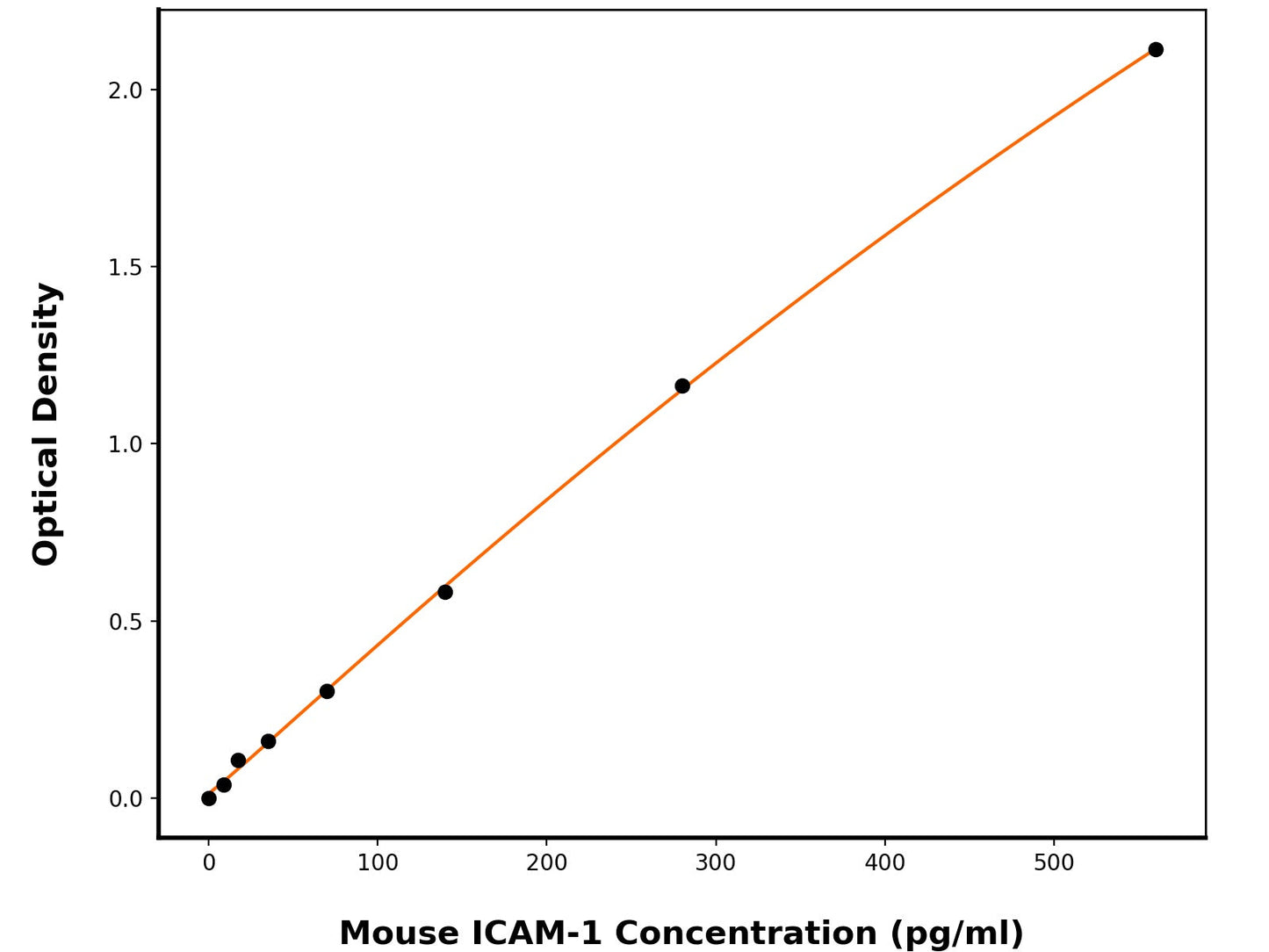1
/
of
1
Mouse Intercellular Adhesion Molecule 1 (ICAM1) ELISA Kit
Mouse Intercellular Adhesion Molecule 1 (ICAM1) ELISA Kit
This ELISA kit is designed to detect Mouse Intercellular Adhesion Molecule 1 (Mouse ICAM1). The assay plate has been pre-coated with mouse anti-Mouse ICAM-1 monoclonal antibody. When the sample containing ICAM-1 is added to the plate, it binds to the antibodies coated on the wells. Then, a horseradish peroxidase conjugated mouse anti-Mouse ICAM-1 Antibody is added to the wells and binds to ICAM-1 in the sample. After washing the wells, substrate solutions are added, and the color intensity is directly proportional to the amount of Mouse ICAM-1 present. The reaction is stopped by adding an acidic stop solution, and the absorbance is measured at 450 nm.
Catalog No:
BPE320
Regular price
$624.00 USD
Regular price
$480.00 USD
Sale price
$624.00 USD
Unit price
/
per
2 weeks
Couldn't load pickup availability
Product Details
Species Reactivity
Mouse
Sensitivity
3.03 pg/mL
Detection Range
8.75-560 pg/mL
Sample Type
Serum, plasma, cell culture supernates
Incubation(s)
3.5 hour(s)
Research Areas
Neuroscience, Immunology, Microbiology, Cardiovascular, Stem cells
Background
Intercellular adhesion molecule-1 (ICAM-1, or CD54) is a 90 kDa member of the immunoglobulin (Ig) superfamily and is critical for the firm arrest and transmigration of leukocytes out of blood vessels and into tissues. ICAM-1 is constitutively present on endothelial cells, but its expression is increased by proinflammatory cytokines. The endothelial expression of ICAM-1 is increased in atherosclerotic and transplant-associated atherosclerotic tissue and animal models of atherosclerosis. Additionally, ICAM-1 has been implicated in the progression of autoimmune diseases. ICAM-1 is a ligand for LFA-1(integrin). When activated, leukocytes bind to endothelial cells via ICAM-1/LFA-1 interaction and then transmigrate into tissues. Presence with heavy glycosylation and other structural characteristics, ICAM-1 possesses binding sites for some immune-associated ligands and serves as the binding site for entry of the major group of human Rhinovirus (HRV) into various cell types. ICAM-1 also becomes known for its affinity for Plasmodium falciparum-infected erythrocytes (PFIE), providing more of a role in infectious disease. Previous studies have shown that ICAM-1 is involved in inflammatory reactions and that a defect in ICAM-1 gene inhibits allergic contact hypersensitivity.
Shipping Condition
Shipped on cold gel packs.
Storage Condition and Shelf Life
This product can be stored at 2-8C.
Analyte
Intercellular adhesion molecule 1
Regulatory Status
For Research Use Only

